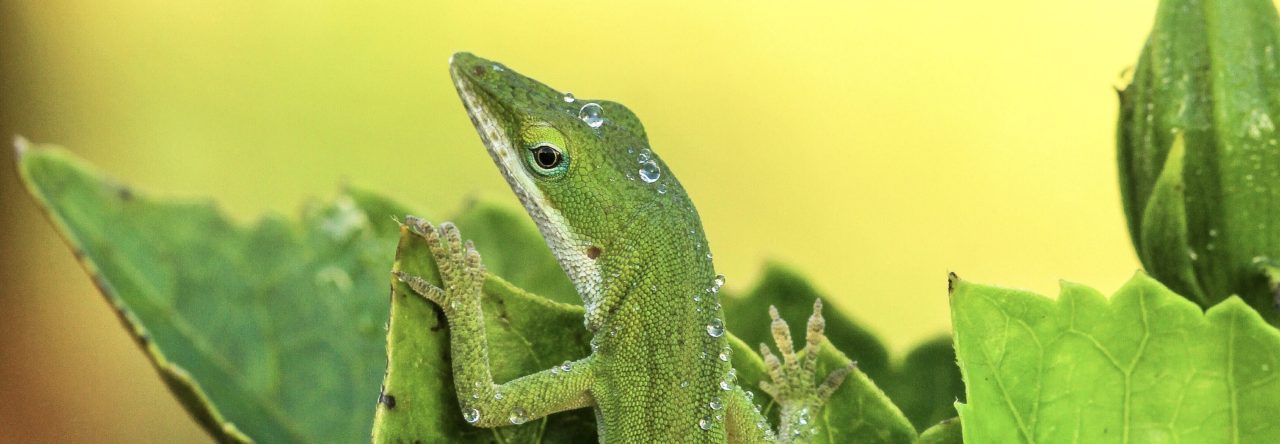 Though temperature-dependent sex determination is one of the most interesting things about reptiles, this mode of sex determination unfortunately does not extend to anoles. In iguanid lizards, sex determination has long be known to be a consequence of sex chromosomes, males being the heterogametic (XY) sex.
Though temperature-dependent sex determination is one of the most interesting things about reptiles, this mode of sex determination unfortunately does not extend to anoles. In iguanid lizards, sex determination has long be known to be a consequence of sex chromosomes, males being the heterogametic (XY) sex.
Reptilian sex chromosomes occupy a strange middle ground within vertebrates: on one hand, amphibian and fish sex chromosomes are marked by rapid turnover in precisely which chromosomes determine sex ; on the other hand, bird and mammal sex chromosomes are characterized by their stability over millions of years. In an early-view paper in Evolution, Rovatsos et al. (2014) show that sex chromosomes are stable in at least some reptiles–in anoles, they have been conserved since before the diversification of the genus.
The authors began by picking five X-linked and three autosomal genes from the recently published Anolis carolinensis genome, and use quantitative PCR to confirm that the X-linked but not the autosomal genes have double the gene dosage values in female vs. male A. carolinensis. Next, they extend their sequencing efforts to seventeen other species from across Anolis as well as three species of phrynosomatid lizards. Remarkably, similar patterns of gene dosage differences between males and females are seen across the sampled taxa, suggesting that the same genes are X-linked in all these species. This result implies the stability of the X-chromosome for at least 70 million years, pre-dating the divergence of Dactyloidae and Phrynosomatidae.
This finding puts a dent in a long standing hypothesis for why birds and mammals have stable sex chromosomes–their stability was attributed to “the lower susceptibility of homoiotermic endothermic vertebrates (mammals and birds) to thermally-induced sex reversals due to their effective thermoregulation.” Rovatsos et al. (2014) call for new explanations for “why some vertebrate lineages possess frequent turnovers of poorly differentiated sex chromosomes, while others show a long-term stability of sex chromosomes connected with their progressive differentiation,” explanations that must take into account the stability of sex chromosomes across anoles and potentially across all iguanian lizards.
- Field Assistant Needed for Anolis Research in Florida! - March 4, 2020
- Are Brown Anoles in Florida Really Driving Green Anoles to Extinction III: A Post-Irma Update - September 15, 2017
- Evolution 2017: Spatial Structuring of Urban Green Anoles - June 30, 2017


1 Pingback